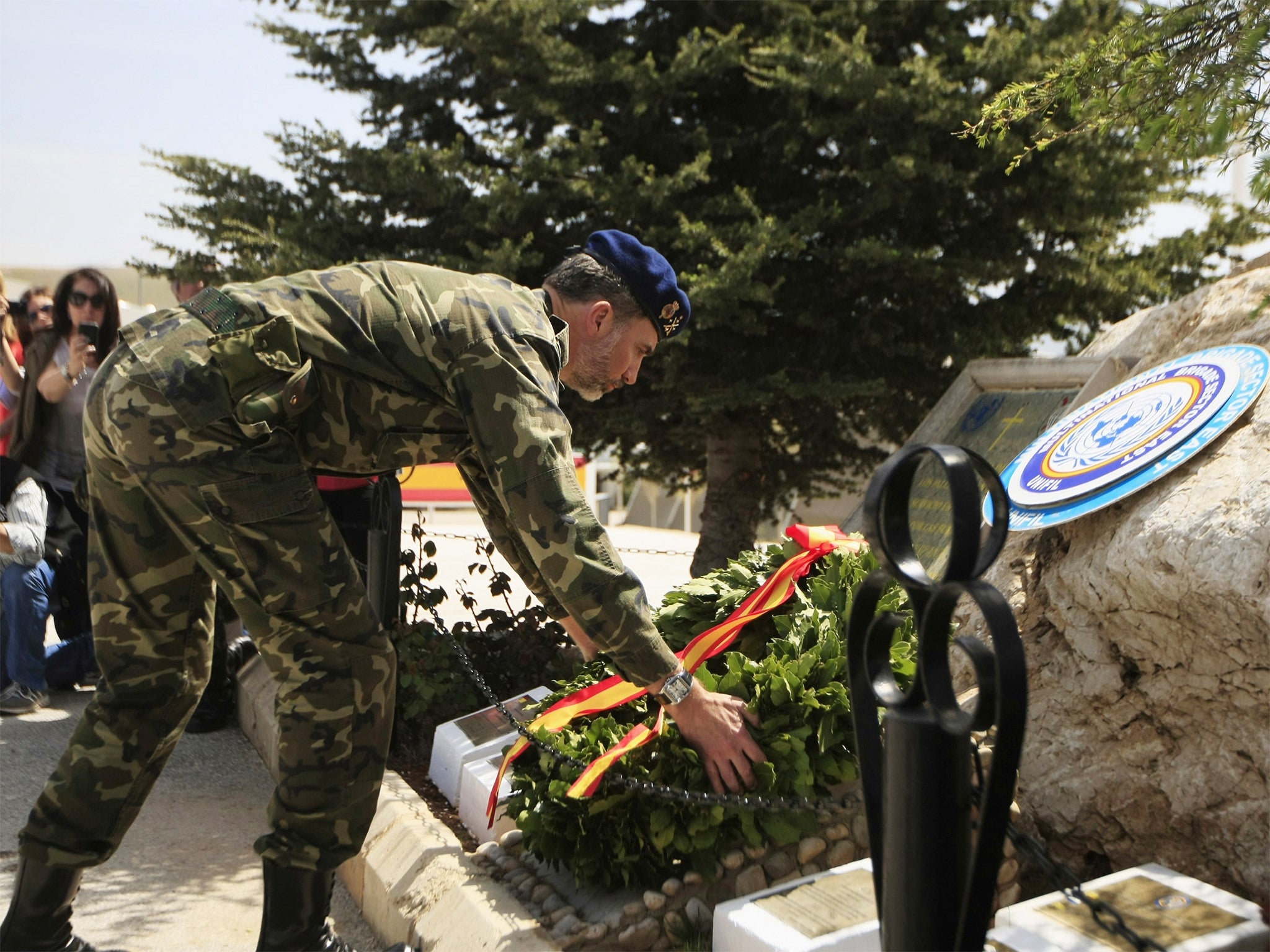Israel blames 'calculation error' for death of Spanish peacekeeper killed by artillery shell in southern Lebanon
Corporal Javier Soria Toledo is the 13th member of the Spanish armed services to die as part of the long-running UN mission which began in 1978

The Israeli army has blamed “a calculation error” for the death of a Spanish soldier who was killed by an artillery shell in southern Lebanon earlier this year.
Francisco Javier Soria Toledo was stationed on the Lebanese side of the border as part of contingent of UN peacekeepers, known as Unifil, during a flare-up in violence between Israel and Hezbollah, the Lebanese militant group.
There was widespread anger in Spain after reports that Israeli shelling of the village of Ghajar appeared to have deliberately targeted the Unifil post in the village, making Corporal Soria the 13th member of the Spanish armed services to be killed as part of the long-running UN mission in southern Lebanon, which began in 1978.
After an investigation into his death, carried out by the IDF (Israel’s military) and two members of a Spanish artillery regiment, the IDF conceded that the 155mm shell that killed Corporal Soria was undoubtedly fired from one of its positions, but denied that the attack was deliberate.
Its full report is yet to be made public, but the El País newspaper says it has been given a detailed explanation of what it contains. The IDF argues in the report that the shelling of the Unifil position followed a cross-border Hezbollah attack on one of its convoys. The report says that the Israeli unit was not equipped with observers to correct the direction of its shellfire and that bad weather also hampered the operation.
That explanation is unlikely to mollify other members of the Unifil unit. Giving evidence to the inquiry, several Spanish troops reportedly said they believed at the time that the attack was intentional. Another corporal, Iván López Sánchez, is understood to have told the inquiry that the IDF corrected the trajectory of the shellfire towards the Unifil post. Sergeant Julio Javier García supported Corporal Sánchez’s claims, and said that the shells initially fell about 500 yards north of the Spanish troops, before the IDF “corrected the trajectory towards the position”. A third soldier said that the shelling appeared to target the post, and that fragmentation ordnance was used by the IDF.
Israel says it warned the peacekeepers not to leave their position on 28 January after two Israelis were killed in a Hezbollah attack. According to a UN report, almost 120 shells were fired by the IDF in the next two hours, along with other ordnance. The report seen by El País is said to have been signed by senior Israeli commanders, but not by any Spanish official.
Spain’s King Felipe visited Spanish members of Unifil in southern Lebanon and laid a wreath to commemorate Corporal Soria’s death. An Israeli spokesperson declined to comment on the report.
During last year’s six-week war with Hamas, the IDF denied that it deliberately targeted UN-run schools in Gaza, in an incident that President Obama described as “totally unacceptable”. UNRWA, the UN mission which works with displaced Palestinians, said that militant groups had, without the UN’s knowledge, used some of its facilities to store weapons.
Subscribe to Independent Premium to bookmark this article
Want to bookmark your favourite articles and stories to read or reference later? Start your Independent Premium subscription today.
